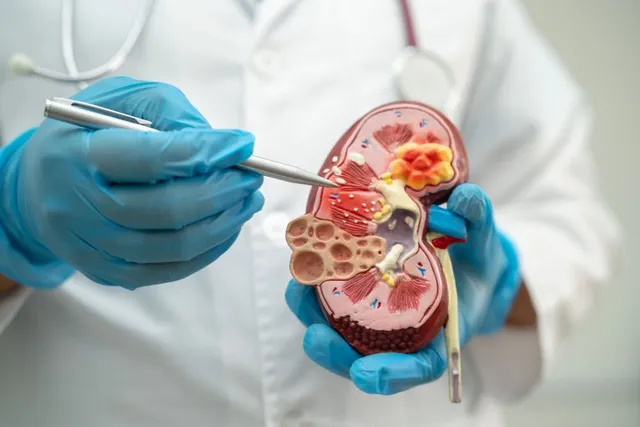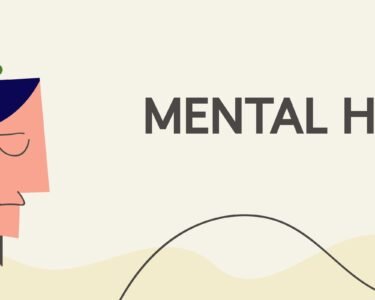The kidneys are small but powerful organs that perform one of the most vital functions in your body — filtering waste and toxins from your blood. Every day, they process nearly 200 liters of blood and remove excess water, salts, and harmful substances through urine. They also help regulate blood pressure, maintain electrolyte balance, and produce hormones that support red blood cell production and bone health.
Despite their importance, the kidneys are often taken for granted — until they stop functioning properly. Chronic kidney disease (CKD) develops slowly and often goes unnoticed until significant damage has occurred. Surprisingly, the causes are not always severe illnesses but rather everyday habits that silently strain these delicate organs over time.
Here are seven common habits that can damage your kidneys without you even realizing it — and what you can do to protect them.
1. Not Drinking Enough Water
One of the simplest yet most common habits that harm your kidneys is chronic dehydration. Water is essential for your kidneys to flush out toxins and prevent the formation of kidney stones. When you don’t drink enough, urine becomes concentrated, making it harder for the kidneys to eliminate waste efficiently. Over time, this can lead to kidney stones, urinary tract infections, or even kidney failure.
Tip: Aim to drink 8–10 glasses of water daily, or more if you live in a hot climate or exercise frequently. However, don’t overdo it — excessive water intake can also strain the kidneys, especially in people with kidney disease. The key is balance.
2. Consuming Too Much Salt
Salt (sodium) is an essential mineral, but most people consume far more than their bodies need. High salt intake causes the kidneys to retain water to balance the sodium levels in the blood, leading to increased blood pressure — a major risk factor for kidney damage. Over time, high blood pressure can weaken and narrow the kidney’s blood vessels, reducing their ability to filter waste.
Tip: Limit your sodium intake to less than 2,300 mg per day (about one teaspoon of salt). Avoid processed foods, canned soups, chips, and fast foods, which are often loaded with hidden sodium. Instead, flavor your meals with herbs, spices, lemon, or garlic.
3. Overuse of Painkillers
Regular use of non-steroidal anti-inflammatory drugs (NSAIDs) like ibuprofen, naproxen, and aspirin can be harmful to your kidneys. These medications reduce blood flow to the kidneys, which can cause damage when taken in high doses or for long periods, especially if you already have existing kidney issues, high blood pressure, or diabetes.
Tip: Use painkillers only when necessary and under a doctor’s supervision. For chronic pain, explore alternative treatments such as physical therapy, stretching, or heat therapy. Always read labels carefully and avoid self-medication.
4. Eating Too Much Sugar
Sugar isn’t just bad for your waistline — it can also harm your kidneys. Excess sugar can lead to obesity and diabetes, two of the leading causes of chronic kidney disease. High blood sugar levels damage the small blood vessels in the kidneys, making it difficult for them to filter blood efficiently. Over time, this can lead to diabetic nephropathy, a serious complication of diabetes.
Tip: Reduce added sugars in your diet by cutting down on soft drinks, pastries, candy, and sugary cereals. Read nutrition labels carefully — sugar hides under names like corn syrup, sucrose, and dextrose. Focus on whole foods, fruits, and complex carbohydrates instead.
5. Ignoring High Blood Pressure and Diabetes
Uncontrolled high blood pressure and diabetes are the two biggest causes of kidney disease worldwide. High blood pressure damages the blood vessels in the kidneys, while high blood sugar can scar and weaken the tiny filters (nephrons) inside them. Together, these conditions accelerate kidney damage and can lead to end-stage renal disease (ESRD), which may require dialysis or a kidney transplant.
Tip: Monitor your blood pressure and blood sugar regularly. Maintain a healthy diet, stay active, and take prescribed medications consistently. Early management of these conditions can prevent long-term kidney complications.
6. Excessive Protein Intake
While protein is essential for muscle growth and repair, consuming too much—especially from red meat and protein supplements—can strain the kidneys. The process of metabolizing protein generates urea, a waste product that the kidneys must filter out. High-protein diets increase the kidneys’ workload and, over time, may contribute to kidney damage, particularly in individuals with pre-existing kidney issues.
Tip: Balance your protein intake according to your body’s needs. Include plant-based protein sources such as lentils, beans, and tofu, which are easier on the kidneys. Consult a doctor or dietitian before starting any high-protein diet plan.
7. Holding in Urine for Too Long
It might sound harmless, but regularly ignoring the urge to urinate can cause kidney damage. When urine stays in the bladder for extended periods, it can lead to bacterial growth and urinary tract infections (UTIs). If these infections spread to the kidneys, they can cause serious inflammation and long-term scarring.
Tip: Don’t make a habit of “holding it in.” Try to empty your bladder every 3–4 hours, and pay attention to any signs of burning, pain, or cloudy urine, which could indicate an infection.
Bonus: Lack of Sleep and Sedentary Lifestyle
Poor sleep and lack of physical activity indirectly affect kidney health. During sleep, your body repairs damaged tissues and regulates blood pressure. Chronic sleep deprivation raises stress hormones and blood pressure, putting extra strain on the kidneys. Similarly, a sedentary lifestyle increases the risk of obesity and diabetes — two key contributors to kidney damage.
Tip: Aim for 7–8 hours of sleep each night and include at least 30 minutes of physical activity daily. Even a brisk walk can make a difference.
Warning Signs of Kidney Damage
Kidney disease often progresses silently, showing no symptoms until it becomes severe. Watch for these subtle signs:
- Persistent fatigue or weakness
- Swelling in the ankles, feet, or hands
- Foamy or bloody urine
- Changes in urination frequency
- Shortness of breath or nausea
- Itchy or dry skin
If you experience any of these symptoms, consult a doctor immediately. Early detection through routine blood and urine tests can make a significant difference in managing kidney health.
Conclusion
Your kidneys work tirelessly to keep your body clean and balanced, but everyday habits can slowly wear them down without obvious warning signs. Skipping water, eating too much salt and sugar, overusing medications, or ignoring underlying conditions like diabetes and high blood pressure can all quietly erode kidney function over time.
The good news? Most kidney problems are preventable. By making small, consistent lifestyle changes — staying hydrated, eating a balanced diet, exercising regularly, and getting enough sleep — you can protect these vital organs and ensure they continue filtering and cleansing your body efficiently for years to come.
Remember, caring for your kidneys is not just about preventing disease — it’s about preserving your overall health and quality of life.
Do Follow Us On Instagram







